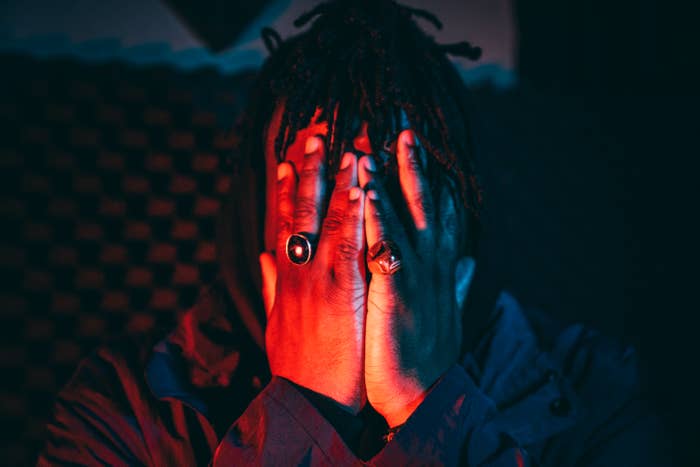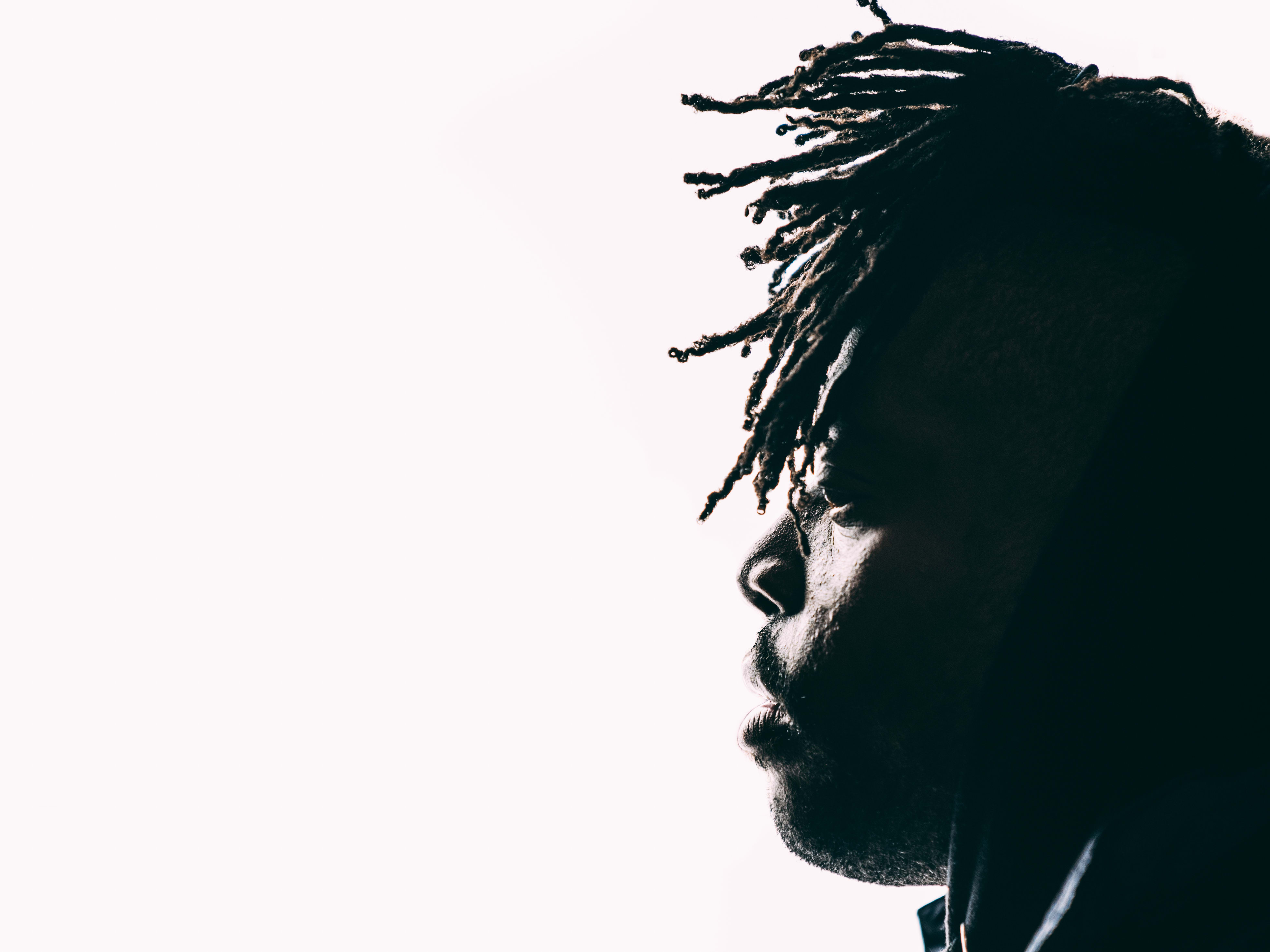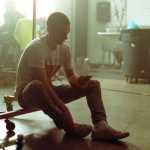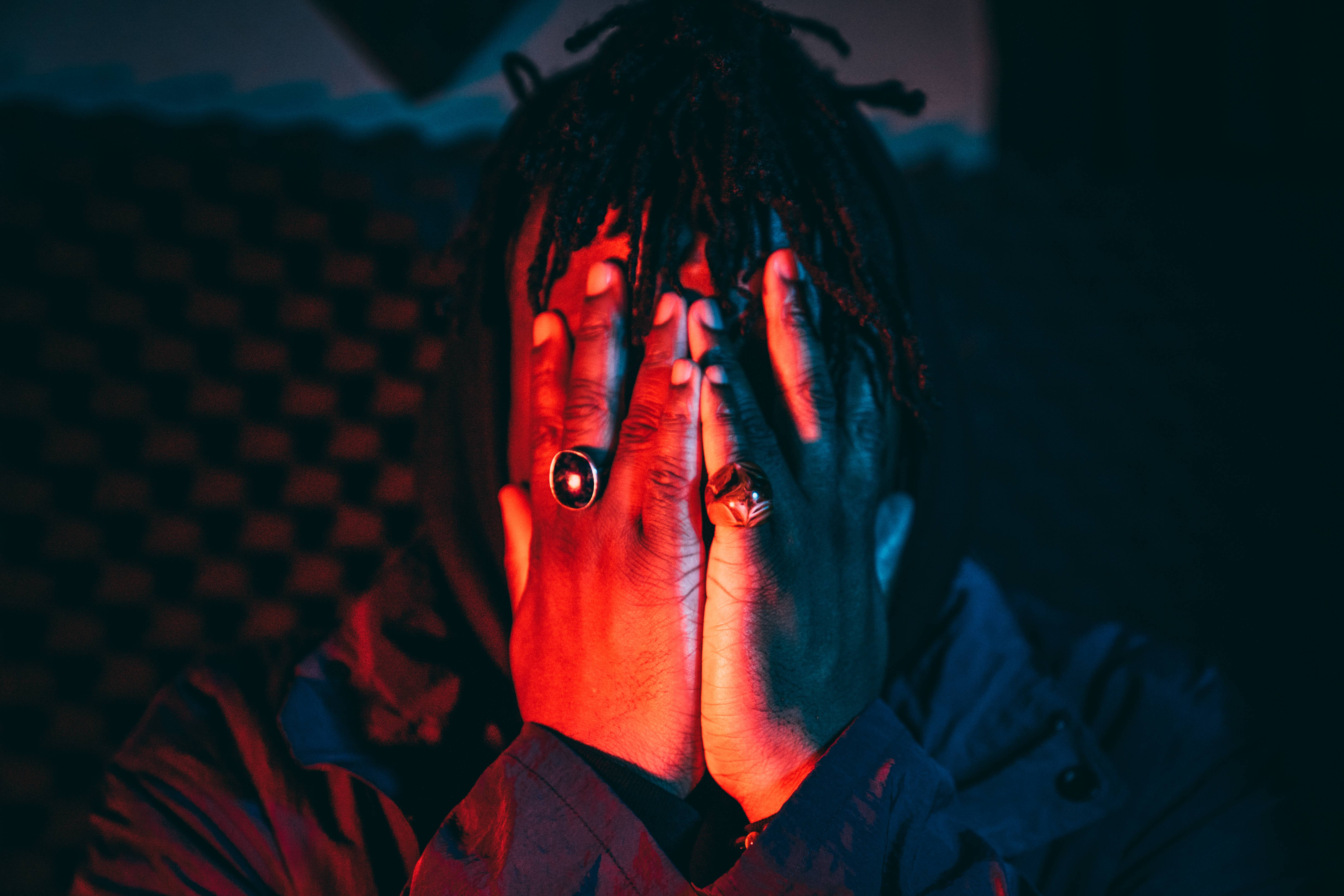
ePP was ready to take a back seat. After years of making music on his own and with various Portland collectives, the transition from hobby to career wasn’t going according to plan. He still provided the occasional feature and wrote for other artists, but the desire to create original material simply wasn’t there. “I knew that there was something in me that I felt like I needed, even if no one else was listening,” he says. “I needed to make music. It's what I'm good at and it's fun. There's no expiration date.”
It was a session with L.A.-born, Portland-based artist The Last Artful, Dodgr that raised the possibility of a future worth pursuing. “The joy was there,” he says. “It was like, I knew how to dribble, I knew how to cross over, everything was there but I just wasn't hitting the jumper. With Dodgr I felt a new energy.” Dodgr connected ePP to the city’s premiere indie labe EYRST, and a tentative partnership was formed.
There’s A Place for People Like You is the first page of ePP’s new chapter. It’s a ranging, urgent album that went through three different iterations before settling into its final form. ePP combines thoughtful, introspective raps with futuristic production from EYRST mainstay Neill Von Tally. It’s rap realism, imbued with a humility rarely seen in the modern music landscape.
It’s the kind of unique genre blend that has become somewhat of a calling card for new Portland rap—the only difference is ePP has been working at this his whole life. From banging on Casio keyboards as a toddler to the fully realized There’s A Place For People Like You, the artist has accepted his lot as a creative, one who delivers unflinching truths over delicious melodies. The music world is better off for it.
When did you move from Georgia to Portland? How did that affect you as a kid?
I was 10. I adapted pretty well to moving from there where it's predominantly black to here where it's completely different. I was young enough to be like, “This is different but I'm going to adapt and play some Pogs and slammers and go skating and figure it all out.”
I want to know where you got your artist name from and when and how you chose it.
It was such a corny way. Coming up, not now, but coming up Johnny Depp was one of my favorite actors. Cry Baby, Edward Scissorhands...it came from that. I turned it into something once I knew that this was what I wanted to do because I started out doing rock shit.
The earliest music of yours I found online was made with TXE, what were you doing before then?
In high school I was in a crew called Sound Godz. Back then, in the mid-2000s everyone was trying to rap like Canibus or Big L, or like Reef the Lost Cauze.
I wanted to start with the artwork because it's so striking. It kind of looks like a graphic novel.
The idea basically came because I'm big into comics, I'm big into anime. The idea was in the corner stores a lot of shit went down, a lot of grimy shit went down in front of this corner store so I wanted to depict that. Graphic novels were the inspiration.
Does the title refer to Portland specifically or is it more of a general commentary of being black in America?
It was just speaking to what we deal with in the black community as far as oppression and anxiety. I wanted to open that up for everyone. Some songs are from very personal experiences and other songs are just open-ended where it's like we've all been through this, let me just speak about it on the track. What's most interesting to me is the fact that there are three versions of the album, and this was the best one.
[the title] was just speaking to what we deal with in the black community as far as oppression and anxiety. I wanted to open that up for everyone.
Three completely different track lists or different orders of the same tracks?
Basically the first one was going to be straight boom bap, that's my wheelhouse, but I wasn't really feeling it. Then it was kind of more experimental so we decided to do an EP and then work on an album while we're doing the EP. I just kept on writing, kept on writing, and then once we got to the new studio space we just kept on going. So it went from five tracks, then we added a handful more and then I had a full length.
You’re releasing this album with Portland indie label EYRST. How did you link up with them, and when did The Last Artful, Dodgr get involved?
Dodgr—that's my ace, that's my sister right there. Neill [Von Tally] hit me up a couple years ago. At this time, mind you, I hadn’t been making music. I was kind of in a dark space. I just really wasn't feeling anything I was writing. People would still hit me up for features, people would still hit me up about TV stuff and I think the strength of that was still kind of keeping me writing, but as far as for my own projects I just didn't have the energy or I wasn't in the head space for it.
So then I'm chilling with Dodge one day—the first day Dodge and I met we wrote two songs in my garage, so I was like, "Yeah, this is definitely going to be tight." The joy was there. It was like, I knew how to dribble, I knew how to cross over, everything was there but I just wasn't hitting the jumper. People were still hitting me up to come work on stuff but [with Dodgr] I felt a new energy.
Maybe that was the spark that I needed to kind of get back into it. At the time I was in my head thinking that people would think that I gave up, but then as time passed on it was for the best because I was able to really step away and ask myself, "Is this really what I want to do?" Music is all ups and downs. No matter what, it's all ups and downs. But this is what I was supposed to do. Five years old I had a Casio keyboard, I didn't know what I was doing but I loved it.

What were you thinking about in those moments when you were considering other alternatives?
You know, back to the streets, regular job. But but I couldn't just do that. There was something in me that I felt like I needed, even if no one else was listening. I needed to make music. It's what I'm good at and it's fun. There's no expiration date, so why would I give up?
Your music doesn’t rely on a lot of braggadocio or hype. Do you feel like there's room for that kind of humility and realism in hip-hop?
I absolutely do, and I think that just goes back to the stuff that I grew up listening to, Tribe and the Roots, all these artists that influence me to this day. I think back then that was what everyone wanted to hear. I'm not trying to say we need to go back to what it was, but I definitely think that there is room. It all works in cycles, and I think that people want to hear about who you are, discover what you're about.
It's kind of at the point where the people who don't listen to rap, they just say, "Oh, all y'all talk about are bitches, and hoes, and killing each other." Then when those people actually get into some altercations, get into some situations where they're really facing some real shit from real street motherfuckers, it's just like now we've popularized this people are actually dying and getting hurt.
It has to be genuine. I can't front, I can't put out some bullshit just to try and make a dollar. That's not going to move me, that's not how I operate.
What’s the reaction been like so far? How did you feel right before it came out?
I wasn't necessarily nervous, I just wondering how people are going to take this in. Are they going to consider this is some super dark emo album, but the response hasn't been that whatsoever. It's been very uplifting and encouraging so I was kind of tripping on that.
I’m more so surprised at how many people be like, “Yo, this is what we needed.” Not verbatim but something along those lines. People telling me they play it front to back doing this, or this is my favorite song, I hope you're doing a video for this. While I was making it, I thought people were going to think this is just emo. But people are like, “This is my summer album.”
Do you have any end goals in mind with music? Is there a short term or long term something you want to hit?
I want to impact people. I want to start a conversation. It's always been to help others and I'm so down with being behind the scenes and just helping other artists build. I was talking to a homie, Noah Porter, he hit me up last week about the album. He told me, "Man, I realize now that you've never been about big, big, big, big, let's do a hit so we can get on."
That's just not me. It has to be genuine. I can't front, I can't put out some bullshit just to try and make a dollar. That's not going to move me, that's not how I operate. I just want to help people make good music, write good songs for other people and just keep it going like that. I can be behind the scenes, you don't need to know my face but you could know the name and that's cool for me.

